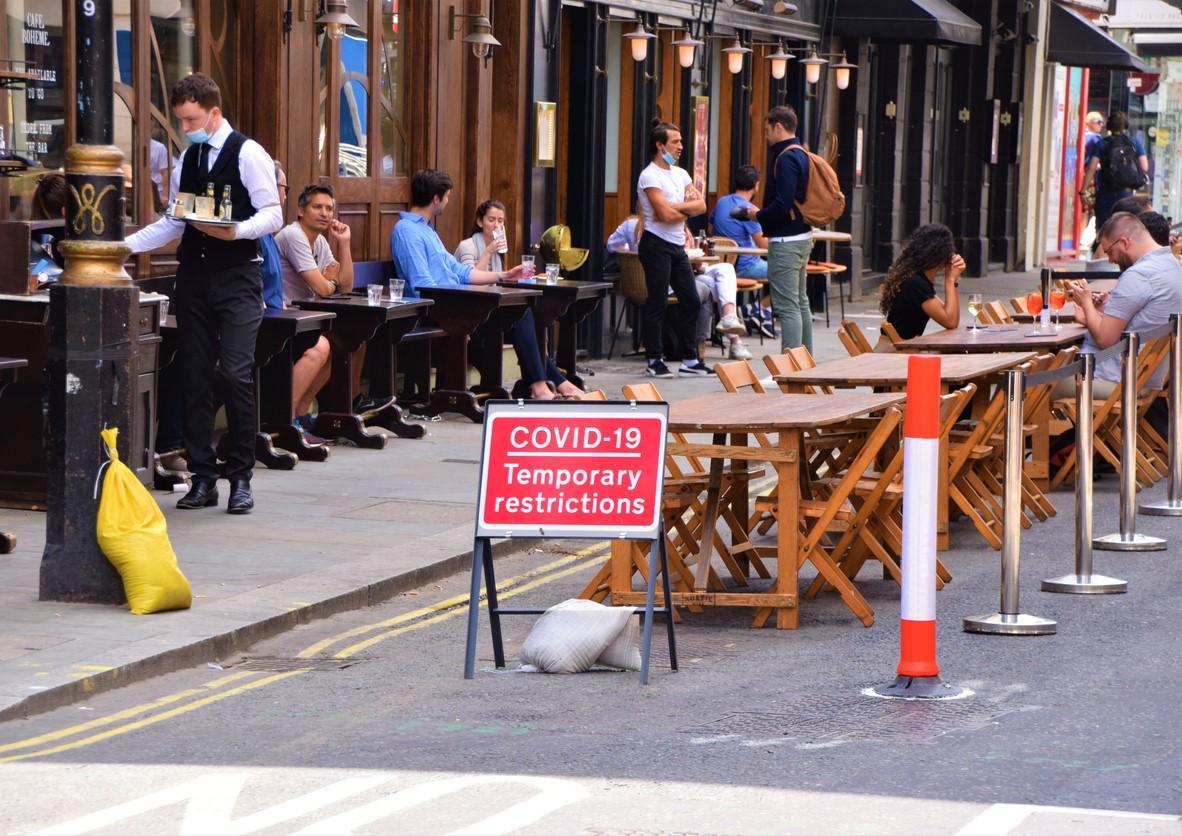Europe's COVID-19 cases have dropped 60% over the past month, but progress is fragile, as the region once again is on guard against a more transmissible SARS-CoV-2 variant, B1617, the head of the World Health Organization (WHO) European regional office said today.
Hans Henri Kluge, MD, MPH, the group's director, said, "We have been here before. Let us not make the same mistakes that were made this time last year."
Much of Europe still vulnerable
Some European countries took reopening steps this week, with, for example, United Kingdom residents returning to pubs and Parisians dining in outdoor cafes again.
Kluge warned that several countries have pockets of transmission that could fuel dangerous resurgences, and he noted that case incidence is still high in eight countries. So far, 26 of 53 countries in the WHO's European region have identified cases of B1617, the variant first detected in India. He said most cases have links to international travel, but onward transmission is occurring, and the virus has the capacity to displace Europe's dominant B117 variant.
He urged countries that are easing restrictions to double down on measures such as testing, sequencing, isolation, contact tracing, and vaccination.
Many people in the region are still susceptible to the virus, with only 23% currently immunized with a single dose and only 11% fully vaccinated, Kluge said. "Vaccines may be a light at the end of the tunnel—but we cannot be blinded by that light."
In other European developments, the UK government yesterday announced the launch of the world's first clinical trial to look at the impact of a third "booster" vaccine dose on immune response. The study is taking place in 2,886 participants across 16 sites throughout the United Kingdom, with scientists assessing seven vaccines. Initial findings are expected in September and will guide recommendations for fall vaccination, designed to shore up protection over the winter.
Meanwhile, Public Health England today released estimates on the impact of the current vaccination program, including that the vaccine prevented 13,000 deaths through May 9 in people older than 60. It also estimated that vaccination prevented 39,100 hospitalizations in those over age 65.
Regarding travel as the summer tourism season approaches, the European Union today announced a final agreement on a "green digital certificate," which will allow vaccinated people to travel freely across borders.
More global headlines
- In India, daily deaths dropped below 4,000 a day after setting a global record, but cases were up compared with the previous day.
- Africa's vaccine rollout has not only been hampered by a supply bottleneck due to a stall in a COVAX vaccine produced by India's Serum Institute but also by a lack of financial resources in some countries to put the shots into peoples' arms, the head of the WHO's African regional office, Matshidiso Moeti, MBBS, said today at a briefing. She added that the supply gap can be filled if developed countries donate doses, but some countries need help developing operational plans to best use their supplies, which includes hiring vaccinators, cold-chain storage, logistics, and transportation.
- Malaysia today reported a record single-day high of more than 6,000 cases, according to CNN.
- In the Americas, Panama is closing its border with Colombia to slow the spread of the virus, and in Brazil, Sao Paulo state—the country's most populous—is easing restrictions, despite rises in cases and deaths.
- The global total today topped 165 million and is now at 165,085,000 cases, along with 3,421,409 deaths, according to the Johns Hopkins online dashboard.




















